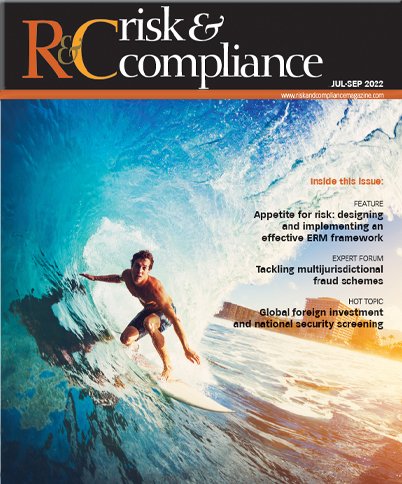MANAGING RISKS IN THE AGE OF AI
R&C: To what extent is artificial intelligence (AI) technology being applied more frequently across the financial services (FS) space? How would you characterise its rising importance?
Alikhani: We realised a while back that the demands of regulatory compliance were growing at a rate that was impossible to keep up with, but that would benefit from automation and technology. Leveraging artificial intelligence (AI), and more specifically machine learning (ML), is an obvious fit. However, human oversight in this space is critically important, which is why expert-in-the-loop methodology is a useful tool. ML is only as good as the data that goes into it. For example, if an ML model cannot determine whether a regulation should be tagged as applicable to certain asset managers, then regulatory and compliance experts should review the document and add the proper tag. Leveraging technology with expert oversight combines best in class innovation with industry leading expertise. We are at a point today where we can utilise that data due to the processing power recovered because of digitalisation, especially in the financial services (FS) industry. So it is really just another tool, another form of technology to leverage and grow a business and improve customer experience.
Dupree: AI has been applied widely across the FS industry for some time to improve customer experience, reduce fraud, eliminate human errors and to realise efficiencies and cost savings through process automation. AI implementation efforts to date have been relatively low risk, oftentimes with the risk of not implementing outweighing the risk of implementing, such as fraud and sanctions screening. However, many companies are considering AI as part of decision-making processes, risk management frameworks and other more complex, yet still repetitive and onerous tasks.

